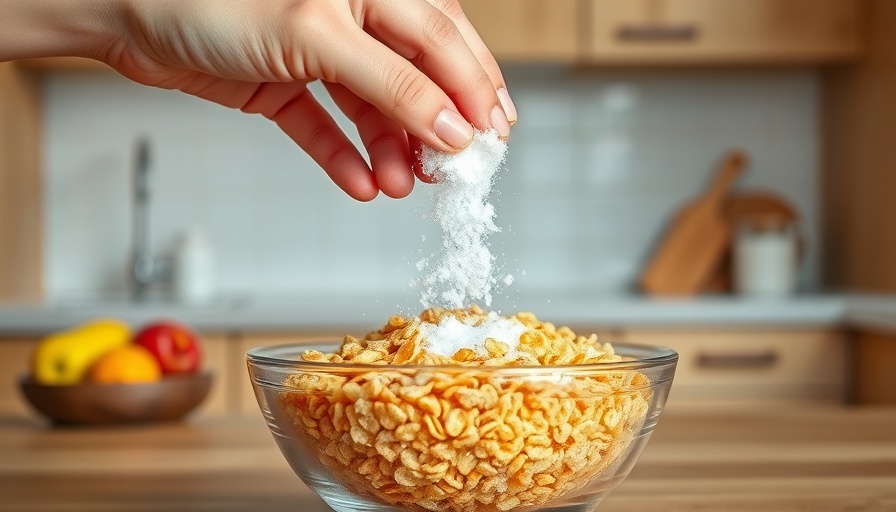
Reducing Sugar: A Personal Experiment to Better Health
As a dietitian, the challenge of cutting out sugar for one week was an intriguing endeavor. I decided to put my knowledge to the test, opting to eliminate added sugar from my diet entirely. My motivation stemmed not just from personal curiosity, but from the desire to understand what happens to the body when it isn't flooded with sugar. Many people are seeking healthier lifestyles, and this is a key element in chronic disease prevention.
The Complexity Behind Sugar Addiction
The concept of 'sugar addiction' is often debated. Sugar indeed has a profound effect on our brain chemistry, triggering the release of dopamine, which may create a cycle of craving for that instant energy rush. The American Heart Association suggests limiting sugar intake to avoid severe health issues such as obesity and heart disease.
Surprising Changes After Giving Up Sugar
The first few days of my no-sugar challenge left me feeling irritable and sluggish. This initial period can often be the toughest part about the transition, as the body adapts to functioning without quick bursts of energy from sugar. We often overlook how sugar can impact our mental health, with cravings leading to mood swings and energy crashes.
Steps to Transition Smoothly to a Sugar-Free Lifestyle
To maintain my commitment, I turned to alternatives to sugar. I replaced sweetened yogurt with plain varieties and substituted my sugar-laden coffee creamer with milk. It was surprisingly easy once I realized the variety of options available. A holistic wellness approach, inclusive of nutrition education, emphasizes being mindful of what we consume while still enjoying food.
What I Learned from My Experience
By the end of the week, something unexpected happened—I stopped missing sweets altogether. This experiment not only deepened my understanding of nutrition but also highlighted the essence of a healthy lifestyle, focusing more on the benefits of reducing sugar rather than dwelling on what was lost.
Empowering Health Choices for a Better Tomorrow
Choosing to reduce sugar is a simple yet effective way to promote proactive healthcare and improve overall well-being. The experience taught me that making informed decisions about our diet directly contributes to longevity and enhanced mental health.
Are you thinking about making changes to your own diet? Don’t hesitate; embrace the journey of exploring a sugar-free lifestyle. It can lead you to a healthier, more fulfilling life. As we enhance our nutrition, we transform our health and well-being, one decision at a time.
 Add Row
Add Row  Add
Add 




Write A Comment